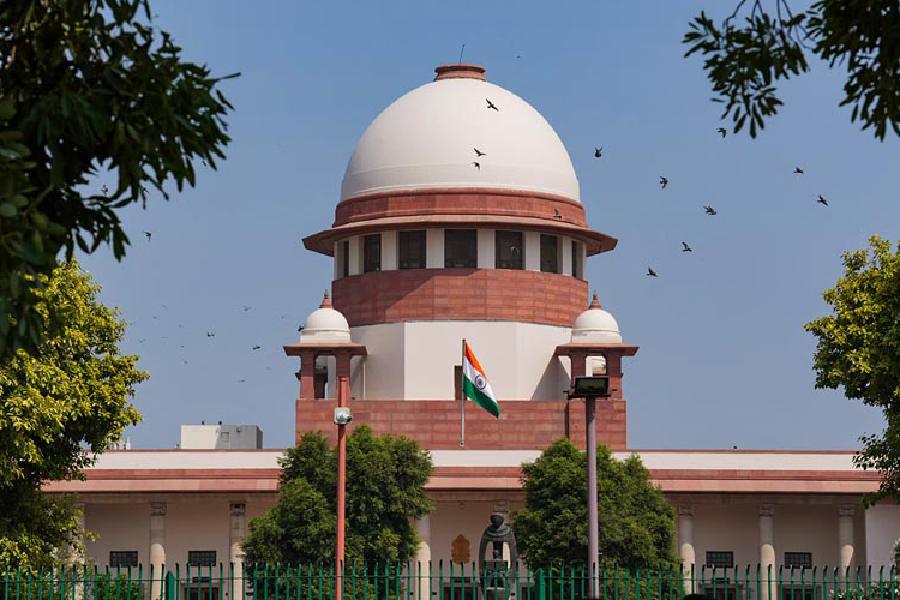The Supreme Court on Monday sought responses from the Centre and the assistance of the attorney-general on a petition by a Muslim woman for a declaration that The Muslim Personal Law (Shariat) Application Act, 1937, shall not apply to “non-believers”.
A bench headed by Chief Justice of India D.Y. Chandrachud, after initially expressing reservation over exercising its jurisdiction under Article 32 (enforcement of fundamental right sought by a citizen), agreed to examine the plea raised by P.M. Safiya, a resident of Alappuzha district and the general secretary of the organisation Ex-Muslims of Kerala.
Appearing for Safiya, advocate Prashant Padmanabhan argued that at present under the Shariat law, a Muslim woman, even if she does not believe in Islam, is under an obligation to follow the personal law, which is a violation of her fundamental rights guaranteed under Article 25 of the Constitution.
Article 25 relates to citizens’ fundamental rights to practice and profess one’s conscience, profession and religion.
Safiya argued that non-believers, who do not want to be governed by Muslim personal law, must be allowed to be governed by the secular law of the land such as The Indian Succession Act, 1925, both in the case of intestate and testamentary succession.
According to the petitioner, a person who leaves her faith in Islam will be ousted from her community and is not entitled to any inheritance rights in her parental property.
“The moment you are born as Muslim, you are governed by the personal law. Your entitlement rights are not governed by being a believer or non-believer,” the counsel said, adding that according to the personal law, a Muslim cannot bequeath more than one-third of their properties by way of will. He said Safiya’s father is also not a believer.
The CJI said that in terms of Section 3 of the Shariat Act, a person has to specifically declare that he/she abides by Islam and only then the personal law would apply to that person. Similarly, Section 58 of The Indian Succession Act stipulates that the legislation will not apply to Muslims.
“Therefore, a void may be created if a declaration, as sought by the petitioner, is granted,” the bench said.
The counsel said Safiya’s father cannot bequeath more than one-third of the property to her. The remaining two-third will go to her brother, who suffers from Down
syndrome.
It was further argued that the petitioner’s daughter will also not get the entire property as in terms of the personal law, her father’s brothers
will also get a claim from Safiya’s property.
The bench noted that some important issues relating to interpretation of the personal law vis-vis The Indian Succession Act arose and agreed to examine the issue at length.











